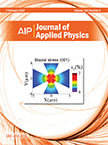
A journal has retracted two 2014 papers after the editors discovered the authors used data from other research groups without permission.
The papers, both published in the same issue of Cell Biochemistry and Biophysics and retracted in May, suffered from similar issues—the authors published data that was not theirs. The authors are all based at different institutions in China; as far as we can tell, the papers do not have any authors in common.
When we asked the publisher whether a third party, such as a paper mill, may have been involved, a spokesperson for Springer told us: Continue reading Journal retracts two papers by authors who lifted others’ data


 In the fall of 2015, out-of-work stem cell biologist Mavi Camarasa decided she had waited long enough. It had been three years since she and a colleague were, best they could tell, the first to successfully correct the most common cystic fibrosis mutation in stem cells derived from a patient.
In the fall of 2015, out-of-work stem cell biologist Mavi Camarasa decided she had waited long enough. It had been three years since she and a colleague were, best they could tell, the first to successfully correct the most common cystic fibrosis mutation in stem cells derived from a patient. 

 Researchers have retracted two 2016 papers from the same journal which were published without the permission of the supervising scientists.
Researchers have retracted two 2016 papers from the same journal which were published without the permission of the supervising scientists.

 After an international group of physicists agreed that the findings of their 2015 paper were in doubt, they simply couldn’t agree on how to explain what went wrong. Apparently tired of waiting, the journal retracted the paper anyway.
After an international group of physicists agreed that the findings of their 2015 paper were in doubt, they simply couldn’t agree on how to explain what went wrong. Apparently tired of waiting, the journal retracted the paper anyway.